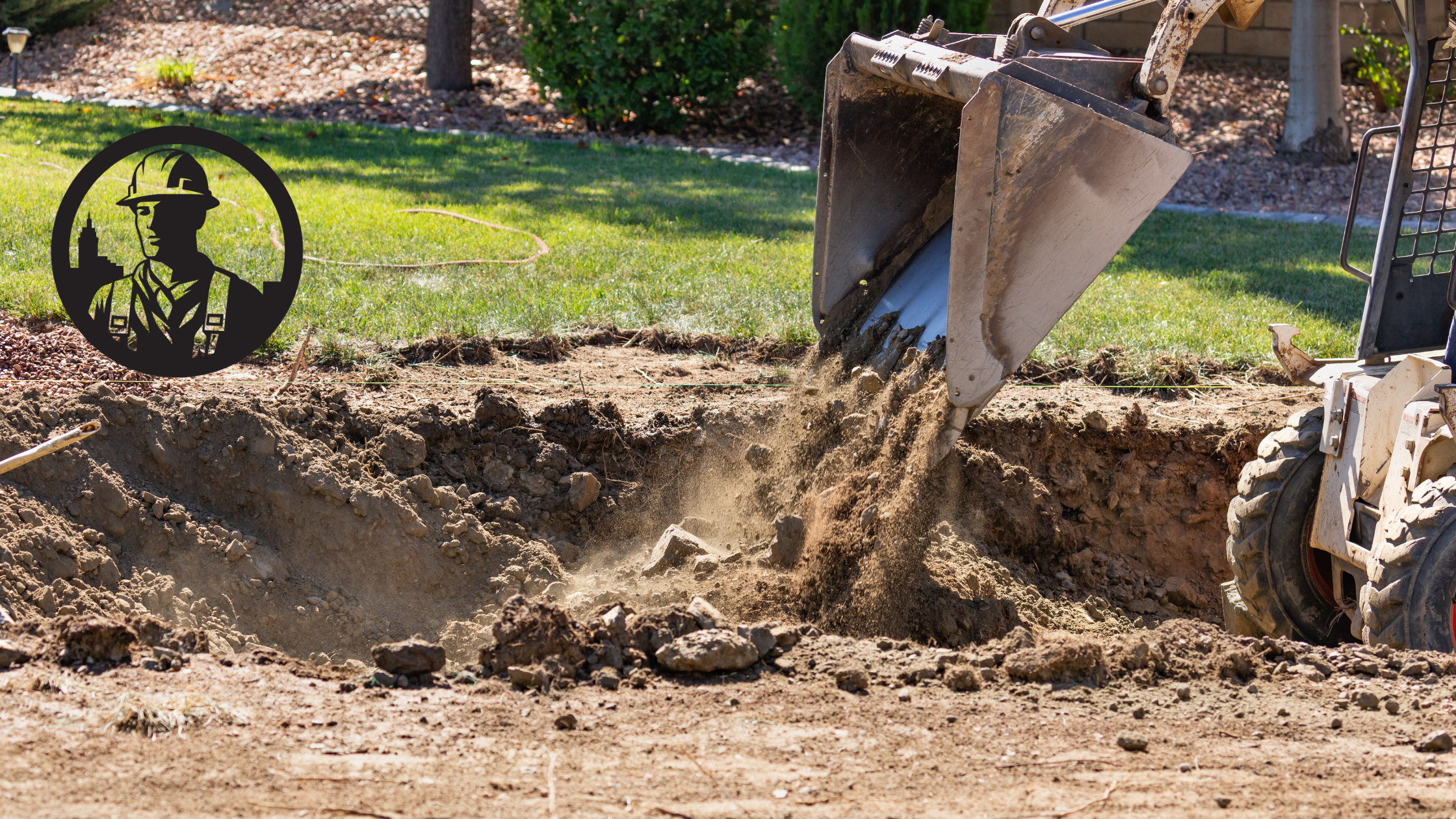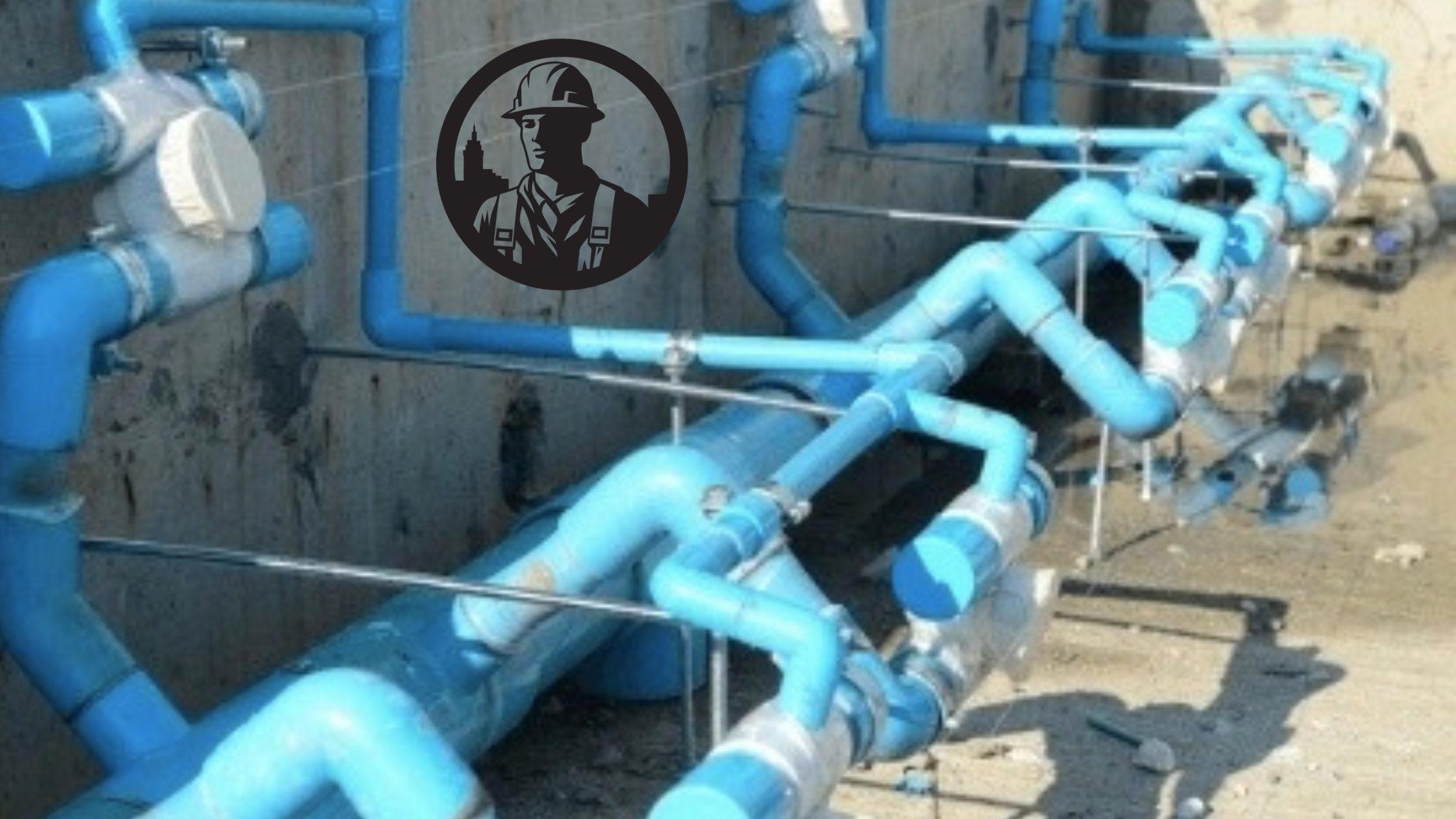
Excavation & Backfilling Contractor — Laying the Groundwork for Success
Before a pool or landscaped oasis can exist, skilled excavation and backfilling contractors prepare the land. They create a stable foundation, ensure proper drainage, and sculpt the terrain, making the vision of a pool or outdoor space possible.
These specialists handle:
Site Preparation: Grading, leveling, and digging to precise specifications.
Structural Base Work: Backfilling and compacting soil for pools, patios, and other installations.
Drainage & Erosion Control: Installing systems to prevent flooding and maintain landscape integrity.
Heavy Equipment Operation: Operating bulldozers, excavators, and loaders safely and efficiently.
Industry Outlook & Career Pathways
Education & Development:
Entry-level requires a high school diploma or equivalent.
Training often occurs on the job, supplemented with heavy equipment certification and OSHA safety training.
Advancement can include supervisory roles or specialized equipment operation certifications.
Income Potential:
Level
Approximate Annual Earnings (U.S.)
Entry-Level Operator
~$35,000–$45,000
Experienced Operator
~$55,000–$65,000
Contractor/Site Supervisor
$75,000+
Job Outlook:
Employment for construction equipment operators is expected to grow 6% through 2033, driven by new construction, residential development, and landscaping projects.
Skilled operators are in demand, particularly in regions with rapid growth or large-scale outdoor projects.
High-Demand Areas:
Suburban expansion zones, resort communities, and commercial development areas.
Construction and landscaping firms often rely on contractors for both residential and commercial pools.
Why This Career is Exciting:
This trade offers hands-on, high-impact work, where you can see the results of your labor immediately. Operators enjoy variety, outdoor work, and the potential to progress into supervisory or contracting roles.

Pool Plumbing Contractor — The Flow That Fuels the Backyard Oasis
When most people think of plumbers, they picture someone fixing a leaky faucet or unclogging a drain. But there’s a specialized side of plumbing that keeps backyard oases and resort pools running smoothly: pool plumbing contractors.
These pros design and maintain the hidden systems that make pools and spas work. From the moment a pool is built, they’re laying out underground water lines, connecting pumps and filters, and ensuring proper drainage and water flow. It’s a mix of engineering and craftsmanship that impacts everything from water clarity to safety.
Pool plumbers also handle:
Circulation Systems: Installing skimmers, returns, and suction lines to keep water moving and filtered.
Heater & Gas Line Hookups: Ensuring cozy warm water for those evening swims.
Leak Detection & Repairs: Using specialized tools to locate and fix underground leaks before they wreak havoc.
Seasonal Services: In many regions, plumbers open pools in spring and winterize them before the cold sets in.
Industry Outlook & Career Pathways
Education & Development:
Most pool plumbers start with a general plumbing apprenticeship (4–5 years) and may supplement training with community college or trade school courses. Licensing exams follow, and pool-specific certifications can further boost credentials:
CPO (Certified Pool & Spa Operator) – foundational knowledge in water chemistry and equipment operations
CMS, CST, CSP – advanced tiers covering maintenance, filtration, electrical troubleshooting, and full-service professionalism
Income Potential:
Level
Approximate Annual Earnings (U.S.)
Apprentice
~$39,000
Journeyman
~$60,000–$63,000
Master/Specialist
$95,000+
Job Outlook:
General plumbing is projected to grow 6% from 2023–2033, with about 43,300 new jobs opening annually.
Pool specialists benefit from labor shortages, luxury pool demand, and seasonal spikes.
High-Demand Areas:
Sunbelt states, resort communities, and fast-growing suburban areas.
Commercial and public pools, including gyms, hotels, and recreational centers, often require certified operators.
Many skilled plumbers eventually launch their own pool service companies, especially where residential pool markets are booming.
Why This Career is Exciting:
Pool plumbing blends outdoor work, technical skill, and visible results. You’re not just fixing leaks — you’re building experiences that families and communities enjoy for years. For those who want variety, problem-solving, and the chance to grow their own business, this is a rewarding niche.

Security & Camera Installers – Trade Profile & Service Breakdown
🛠️ What They Do: A Service-by-Service Breakdown
1. CCTV Camera Installation
From front porches to factory floors, camera installers are the eyes behind the lens.
They handle:
Residential & commercial surveillance setups
Indoor and outdoor camera mounting
Analog, HD-CVI, and IP camera systems
Wired and wireless configurations
PTZ (pan-tilt-zoom) and 360° dome cameras
2. Alarm System Installation
These systems are your first line of defense when trouble knocks. Installers set up:
Burglar/intrusion alarm systems
Motion detectors, glass-break sensors, and door/window contacts
Panic buttons and emergency alert devices
Wired and wireless system setups
Programming and control panel configuration
3. Access Control Systems
From smart locks to biometric readers, access control tech keeps unauthorized hands out.
Keypad and card reader installation
Mag locks, electric strikes, and door sensors
Biometric and smart card access
Integration with fire and security systems
Multi-door and building-wide access control
4. System Integration & Networking
No security setup runs in isolation. Integration is key.
Connecting cameras to DVR/NVR systems
Remote viewing setup via mobile apps
Wi-Fi and hardwired networking
Smart home integration (Alexa, Google, Apple HomeKit)
5. Maintenance & Troubleshooting
When a system fails, these folks are the first responders.
Cable testing and terminations (CAT5e/CAT6)
Upgrades and component replacements
Firmware updates and software fixes
Cleaning, realignment, and lens replacements
🔧 Tools of the Trade
Security installers show up with a full toolkit and a game plan. Common gear includes:
Cable testers, crimpers, punch-down tools
Drills, ladders, fish tape, conduit benders
DVRs/NVRs, POE switches, IP cameras, alarm panels
CAT5e/CAT6 cable, coax, connectors, and power supplies
📚 Training & Certification
While some enter through on-the-job training, many employers prefer certified techs. Paths include:
Low-voltage technician programs
Manufacturer-specific training (Honeywell, Hikvision, etc.)
ESA/NTS, NICET certifications
A strong grasp of electrical code, safety, and networking
💰 Average Pay
Security and camera installers can earn solid blue-collar wages:
Entry-level: $22–$35 per hour
Experienced or certified techs: $60k–$80k+ annually
(Especially with commercial or government contracts)
🔮 Job Outlook
The future is bright for this growing field:
Increasing demand for smart home integration and surveillance
More crossover with IT, automation, and access control
Techs who combine customer service with networking knowledge are especially valuable
💬 Final Word from The Blue Collar Boyfriend
Security installers might not wear a badge, but they protect lives and livelihoods every single day. Whether you're thinking about breaking into the trade or hiring a pro to secure your site, this role deserves a solid nod of respect.
Got a favorite camera setup, install tip, or tech horror story? Drop it in the comments or tag us in your job site stories—we’d love to feature the unsung heroes keeping the world wired and protected.
